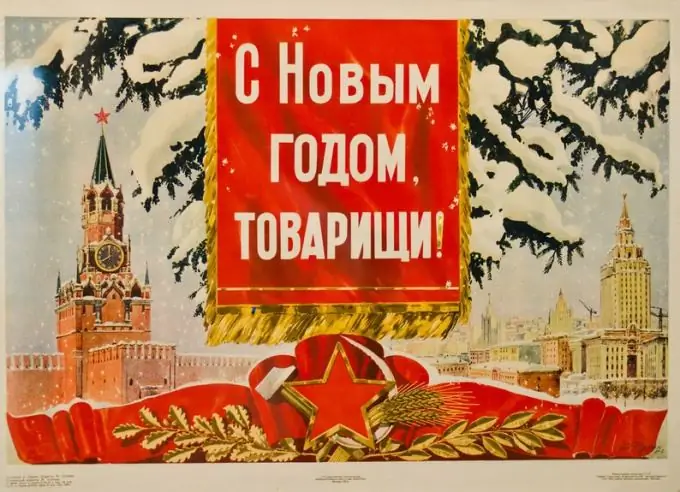- Author Nora Macey [email protected].
- Public 2023-12-16 10:17.
- Last modified 2025-01-23 08:47.
Language is a living phenomenon. It is constantly evolving and changing. New words appear, and some go out of circulation or change their meaning. This is the case with the word "comrade". More recently, it has been widely used. And now, having lost the form of wide circulation, it began to denote only a friend or acquaintance.

Nuances of using the word "comrade"
A comrade is a form of addressing any person in an anti-monarchist and revolutionary environment. After the October Revolution, this word was commonly used in the Soviet Union and many socialist countries and became official. In addition, it was popular in various leftist parties and organizations. Interestingly, the feminine form of the word "comrade" in the Russian language was not used as an address. The women were by no means called “comrades”, but “Comrade Ivanov” was addressed to them.
In many countries, there were and still exist analogs of such treatment. For example, in Germany there was a word “partaigenosse”, literally translated as “party comrade”. The non-partisans were called "Volksgenosse", that is, "a comrade from the people."
Among young people, the appeal "comrade" is in circulation, taking its roots from the English word "Comrade" and the French word "Camarade", which are also translated as "comrade".
Now this word has survived in the form of an address only in some areas. For example, it is a statutory appeal to the Russian Army and the Communist Party of the Russian Federation.
The history of the word "comrades"
This word, despite its long history of use in the Russian language, is by no means native Russian. It is derived from the Turkic word "tauar". This term was originally used in the Turkic language to refer to livestock. However, a little later, it evolved and began to be used in relation to any goods and property.
After borrowing into the Old Russian language, the meaning of this word changed even more and became twofold, denoting at the same time goods, and transport, wagon train, and camp. The word "comrade" also existed in the same sense of the camp, the camp, denoting a wagon train with a large amount of goods.
A little later, the word "comrades" began to call themselves wandering traders who traded in the same type of product. And then the word migrated to the merchants. And in this environment, it received a new meaning and meaning. According to one version, the merchants used the word “comrades” to name a certain group of their subordinates. These people were exclusively engaged in the inspection and selection of goods for their subsequent purchase. Even in historical sources you can find the expression "such and such a boyar with comrades", that is, a merchant and his subordinates.
Summing up all of the above, it can be argued that the word "comrades" originally meant a person of the same camp, an accomplice in a trade trip, then a companion, and only much later began to have a political connotation.






